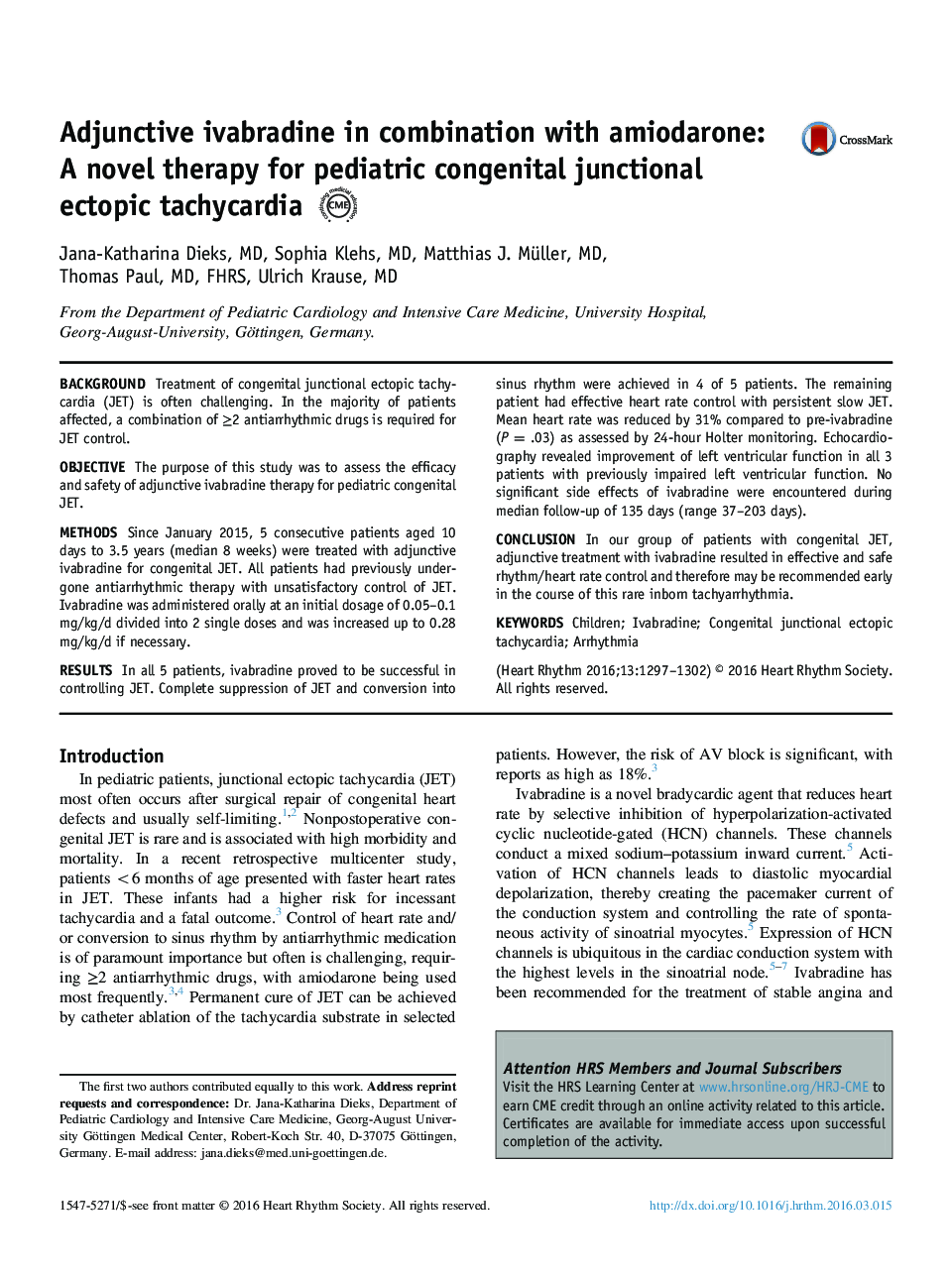| Article ID | Journal | Published Year | Pages | File Type |
|---|---|---|---|---|
| 2921715 | Heart Rhythm | 2016 | 6 Pages |
BackgroundTreatment of congenital junctional ectopic tachycardia (JET) is often challenging. In the majority of patients affected, a combination of ≥2 antiarrhythmic drugs is required for JET control.ObjectiveThe purpose of this study was to assess the efficacy and safety of adjunctive ivabradine therapy for pediatric congenital JET.MethodsSince January 2015, 5 consecutive patients aged 10 days to 3.5 years (median 8 weeks) were treated with adjunctive ivabradine for congenital JET. All patients had previously undergone antiarrhythmic therapy with unsatisfactory control of JET. Ivabradine was administered orally at an initial dosage of 0.05–0.1 mg/kg/d divided into 2 single doses and was increased up to 0.28 mg/kg/d if necessary.ResultsIn all 5 patients, ivabradine proved to be successful in controlling JET. Complete suppression of JET and conversion into sinus rhythm were achieved in 4 of 5 patients. The remaining patient had effective heart rate control with persistent slow JET. Mean heart rate was reduced by 31% compared to pre-ivabradine (P = .03) as assessed by 24-hour Holter monitoring. Echocardiography revealed improvement of left ventricular function in all 3 patients with previously impaired left ventricular function. No significant side effects of ivabradine were encountered during median follow-up of 135 days (range 37–203 days).ConclusionIn our group of patients with congenital JET, adjunctive treatment with ivabradine resulted in effective and safe rhythm/heart rate control and therefore may be recommended early in the course of this rare inborn tachyarrhythmia.
